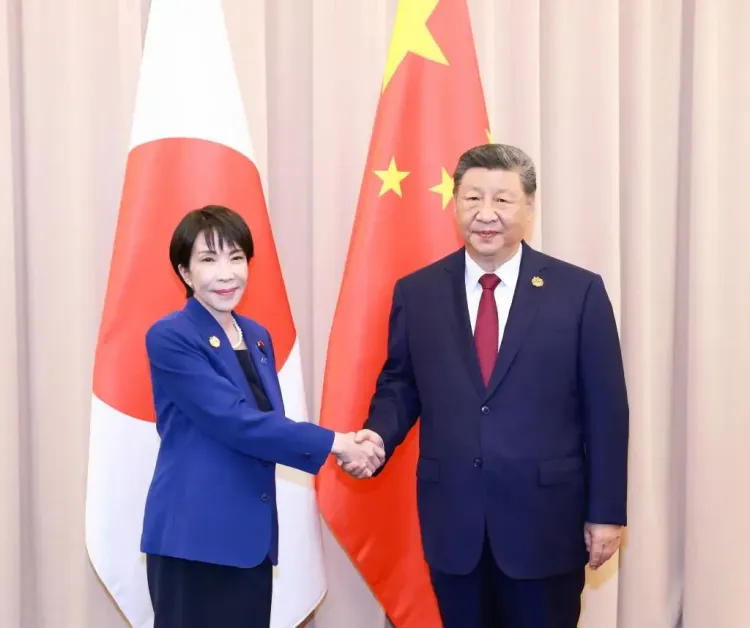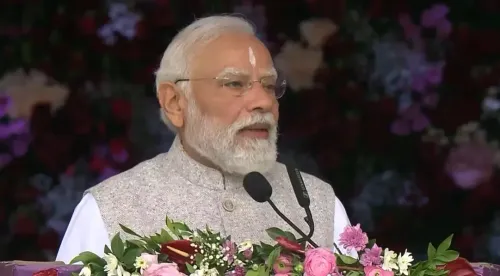Why Did China Stop Japanese Seafood Imports Amid Rising Tensions?

Synopsis
Key Takeaways
- China halts Japanese seafood imports due to diplomatic tensions.
- Prime Minister Takaichi's comments on Taiwan triggered the situation.
- Japan aims to maintain tourism and educational exchanges despite challenges.
- Both countries are engaged in dialogue to resolve their differences.
- The Japanese government is issuing safety notices to citizens in China.
Tokyo, Nov 19 (NationPress) China has informed Japan of its choice to halt imports of Japanese seafood, amid rising tensions triggered by remarks from Japanese Prime Minister Sanae Takaichi concerning Taiwan, according to local media sources on Wednesday. Earlier this month, China had resumed the importation of marine goods from Japan after lifting an extensive ban that was enacted in August 2023 due to the discharge of treated radioactive water from the compromised Fukushima nuclear facility.
In addition, Kyodo News, citing a Japanese Foreign Ministry source, reported that China and Japan were unable to settle their disagreements during a senior officials' meeting, as Tokyo rejected Beijing's request to retract Takaichi's comments on Taiwan.
Masaaki Kanai, the leader of the Japanese Foreign Ministry's Asian and Oceanian Affairs Bureau, met with his Chinese counterpart Liu Jinsong on Tuesday to address bilateral matters.
Reports indicate that Tokyo's discussions aimed to mitigate the diplomatic rift affecting tourism, education, and entertainment interactions between the two neighboring nations.
These negotiations followed Beijing’s vehement protest after Prime Minister Takaichi, known for her pro-Taiwan perspective, expressed in a parliamentary committee on November 7 that a military incursion into Taiwan could pose a 'survival-threatening situation' for Japan, suggesting a potential defensive reaction involving the Japanese Self-Defense Forces.
In response, the Chinese government has advised its citizens against traveling to Japan and urged those considering studying there to rethink their plans due to perceived safety risks.
The Japanese Foreign Ministry reported that Kanai dismissed the basis of China's travel advisory issued last week, asserting that Japan's public safety conditions remain stable.
He also lodged a formal protest with Beijing concerning a recent social media comment made by Chinese Consul General in Osaka, Xue Jian, which included the phrase 'cut a dirty neck without a moment of hesitation' — a statement interpreted as a threat against Takaichi after she indicated a possible defense response in case of a Taiwan crisis.
On the same day, the Japanese government declared its intention to issue a safety notice to students enrolled in schools and universities across China.
After a Cabinet meeting on Tuesday, Japan's Education Minister Yohei Matsumoto announced this initiative during a press briefing, stating, 'We have decided to implement measures to ensure the safety of students, their families, and faculty members in China.'
The Embassy of Japan in China has also encouraged its citizens to exercise increased caution and to avoid crowded locations amid the mounting tensions between the two nations.









